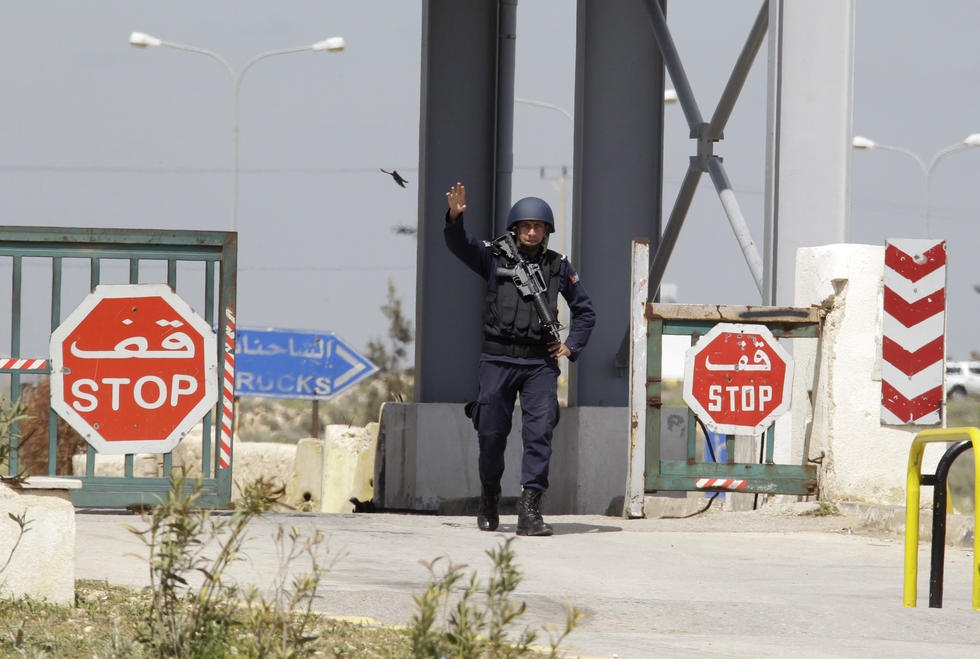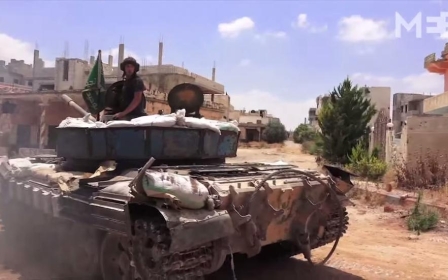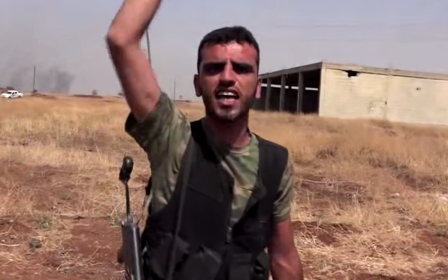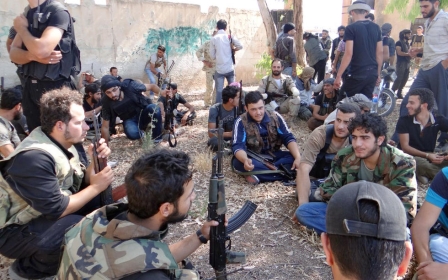Jordan to build buffer zone on Syria’s southern border

Jordan is planning on building a buffer zone on its border with southern Syria, which will cut through the Syrian provinces of Sweida and Deraa, according to a report by the Financial Times.
The buffer zone, designed to bolster the so-called moderate opposition in Syria, will be the first humanitarian zone for the Syrian opposition fighters and refugees since the bloody conflict began four years ago.
According to the Financial Times, the buffer zone has already received the backing of several key members of the international anti-Islamic State group (IS) coalition. It will initially be controlled by the rebel Southern Front alliance, which will later be supported by a brigade of troops that are currently receiving training in Jordan. The Jordanian army will also provide support, but it was not clarified on whether that was in logistical or “boots on the ground” terms.
Speculation as to whether Jordan will also build a militarised zone that will separate the buffer zone from the Syrian government forces in the north is yet to be confirmed. Despite the role that the Southern Front will have in securing the buffer zone, poor coordination or miscommunication has led to several commanders and top leaders in this rebel block claiming they had not been consulted about the move.
When contacted by the FT, senior Southern Front figures said they were unaware of the plans to build the buffer zone.
The announcement comes after several weeks of heavy fighting in Deraa province that has seen the rebels make gains against the government and seize a key military base, although the rebels have thus far failed to root out government forces from Deraa town.
Security concerns
Talks of a buffer zone on Syria’s southern front were first brought up two years ago when Jordan was still opposed to having a military role in Syria. The largest southern town of Deraa, the starting point of Syria’s uprising against the government in March 2011, has always been seen as the best test case for such a zone. However, the rise of the Islamic State group and its close proximity to Jordan has begun to burden the Hashemite kingdom’s security concerns. Since last summer when IS took over large parts of Iraq and established its self-proclaimed caliphate, it has grown in presence in Syria and Iraq, and carried out a series of large-scale attacks.
The developments have prompted Jordan to revise its role regarding the turmoil in its neighbouring Syria and Iraq and pushed it along a more interventionist route.
Jordan is now a member of the US-led international coalition against IS, and has launched air strikes in Syria over IS targets. The country is also involved in the US training and equipping of moderate Syrian opposition fighters to counter IS and other opposition fighting groups.
In addition to the expansion of IS, the kingdom has listed the growth of Salafist leaders within the Syrian opposition, and containing the mass refugee influx crossing over its border as its primary concerns.
Despite widespread belief that the government of Bashar al-Assad would soon fall in the wake of such widespread opposition, his forces have hung on for more than four years and still retain control of much of western Syria, including the capital Damascus.
Recent gains by a range of opposition groups - from the Southern Front to al-Qaeda’s Syrian affiliate al-Nusra and the Islamic State – have led many analysts to conclude that Assad could be on the back foot although he still continues to have a large amount of support from both Iran and Russia.
On Monday, Russia reiterated its support for Assad following a visit by Syria’s Foreign Minister Walid al-Muallem who met with his Russian counterpart Sergey Lavrov as well as Russian President Vladimir Putin.
"I received a promise from President Putin to support Syria politically, economically and militarily," Muallem said at a press conference after meeting with the Russian leader.
Putin also said that the Syrian leadership would have his full support if it decides to form its own anti-IS international coalition.
“If the Syrian leadership considers [forming such a coalition] acceptable and possible, we will do our best to support you,” Putin said. “We will use our good relations with all the countries in the region to try to create this kind of coalition."
Middle East Eye propose une couverture et une analyse indépendantes et incomparables du Moyen-Orient, de l’Afrique du Nord et d’autres régions du monde. Pour en savoir plus sur la reprise de ce contenu et les frais qui s’appliquent, veuillez remplir ce formulaire [en anglais]. Pour en savoir plus sur MEE, cliquez ici [en anglais].




